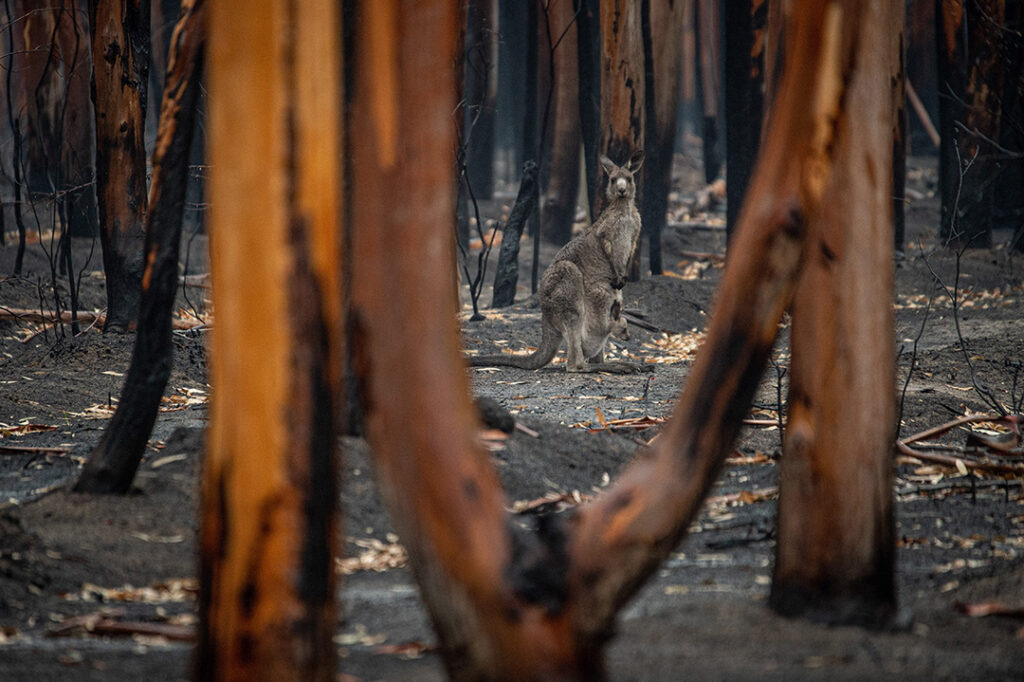Heeding the call of Laudate Deum: Pope Francis’ climate wake-up
Heeding the call of Laudate Deum: Pope Francis’ climate wake-up
With the publication of Laudate Deum, Pope Francis sounds an alarm and issues a plea for shared responsibility in response to the climate crisis.
On the 4th of October, 2023, Pope Francis released his latest Apostolic Exhortation titled Laudate Deum. Its publication coincided with the feast day of Saint Francis of Assisi. The letter, addressed to “all people of good will on the climate crisis,” comprises 73 succinctly numbered paragraphs, accompanied by 44 numbered bibliographic endnotes. Notably, the most frequently cited source within this document is his 2015 encyclical letter, Laudato Si’.[1]
Laudate Deum serves as an urgent call to action to confront the climate crisis. It acknowledges the dwindling time available and the irreversible damage inflicted on our environment.[2] Even eight years after his heartfelt expression of concern in Laudato Si’, Pope Francis underscores that our efforts to address the issue have fallen short.[3]
What does Laudate Deum mean?
Laudate Deum is often described as a follow-up to Laudato Si’, and its title serves as a testament to this connection. Like the predecessor text, this new document echoes the sentiments expressed in St. Francis’ prayer poem, the Canticle of the Creatures, which glorifies God by celebrating His creation. Pope Francis expressly mentions that the title of this letter is ‘Praise God’ because, in his words, “when human beings claim to take God’s place, they become their own worst enemies (paragraph 73).”[4]
An apostolic exhortation focused on integral ecology
With this new apostolic exhortation, the pope aims to elucidate and finalise the earlier document on integral ecology. Concurrently, he sounds an alarm and issues a plea for shared responsibility in response to the climate crisis. In particular, the letter anticipates COP28, scheduled for November and December in Dubai.[5]
The pope analyses the global climate crisis by utilising data from institutions such as the Intergovernmental Panel on Climate Change and the United Nations Environment Programme. His goal is to provide a comprehensive view of this issue, addressing its human and social aspects, including links to poverty, healthcare, gender disparities, housing, employment, etc. The text stresses the importance of providing these clarifications, especially when faced with “certain dismissive and scarcely reasonable opinions,” (paragraph 14) even within the Catholic Church.[6]
A profound vision of the intrinsic connection between humans and nature
In line with Laudato Si’, this letter transcends the mere presentation of environmental problems and their impacts on various aspects of life. The pope takes a spiritual perspective that draws attention to the intrinsic connection between humanity and the natural world. He emphasises that “we are part of nature, included in it and thus in constant interaction with it” (paragraph 25), an idea already presented in the preceding text. Moreover, he cites indigenous cultures as exemplars of harmonious interaction with nature, in contrast to the destructive tendencies often seen in the technocratic paradigm.[7]
Pope Francis’ integral ecology
Since the publication of Laudato Si’, Pope Francis has been recognised as an advocate for the understanding of reality as interconnected, arguing that “we are all creatures and everything in creation is related.”[8] His concept of the ‘common home’, where issues related to the environment, the economy, and society come together, is connected to what he himself refers to as ‘integral ecology’.[9]
Pope Francis’ understanding of integral ecology highlights the imperative need for an awareness of the interconnected nature of reality when addressing contemporary challenges.[10] Moreover, it underscores the intricate connections, both biological and spiritual, that exist between humans and non-human entities.[11] In his view, the holistic approach promoted by integral ecology holds the promise of repairing the relationships between humans and the Earth. This standpoint can be regarded as a moral and ethical response to global challenges, providing a more comprehensive understanding of how we have reached the current moment in time.[12]
Learn more about religion and society on the EARS Dashboard
Sources
[1] Pope Francis releases apostolic exhortation ‘Laudate Deum’
[3] Laudate Deum – Pope Francis Renews his call to protect our common home
[4] Laudate Deum: Your questions answered on Pope Francis’ Apostolic Exhortation
[5] “Laudate Deum”: the Pope’s cry for a response to the climate crisis
[7] Ibidem
[8] Pope: contemplation, compassion indispensable for integral ecology
[9] Integral Ecology: A deeper insight into reality
[11] Pope Francis’ Integral Ecology and Environmentalism for the Poor



